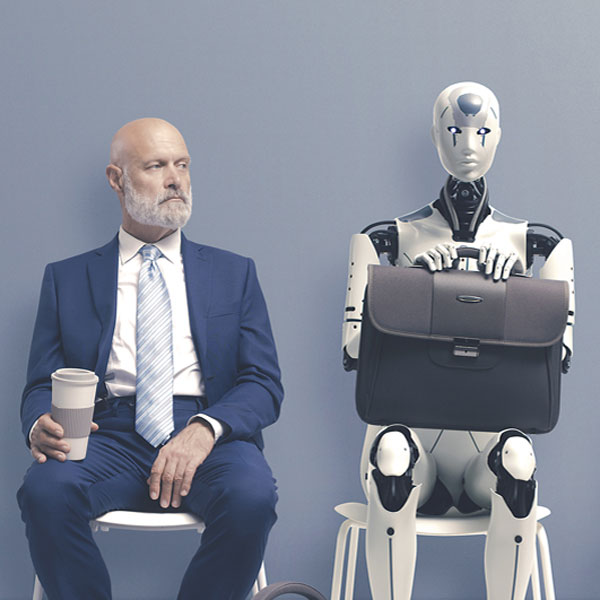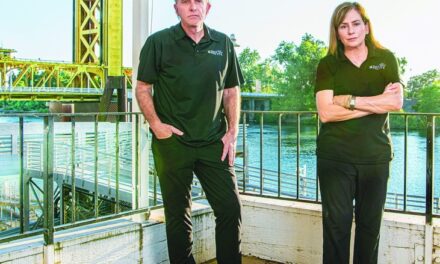Artificial Intelligence is going to affect us all, sooner than we think, and not for the best. The World Economic Forum predicts 20% of all jobs will be negatively impacted in the next five years.
Many companies welcome AI. They want to employ fewer people. If AI programs handle the work, organizations don’t have to pay salaries or benefits, just maintenance costs. Robots won’t file workplace lawsuits.
I was curious about AI, so I downloaded a free app called Alfred. A few months ago, I wrote a column on the city’s ban of gas service to homes. Since I was biased against the ban, I asked Alfred to write up the best pro and con arguments on home gas service.

The results were near perfect. Factual, balanced and well written. In this case, AI functioned as a super search engine and a solid writer. I was impressed.
Next, I asked Alfred to evaluate how Mayor Darrell Steinberg was doing in his struggle to reduce homelessness in Sacramento. Alfred flunked the test.
The AI report could have been copied from Steinberg’s website and regurgitated by his communications staff. It stated unequivocally that homelessness had been significantly reduced in Steinberg’s six years as mayor.
Of course, the opposite is true. While Alfred latched onto nonfactual information, my new reporter missed in-depth coverage Inside Sacramento produced over the last five years. When I asked about Inside’s coverage of the mayor, Alfred meekly referred me to our website.
Education is already impacted by AI. At high school and college levels, teachers use AI software to verify if papers were written by AI or students. A professor friend told me software showed 100% of his students used AI on a final exam.
Millions of students use Khan Academy’s online learning videos and problem sets to supplement schoolwork. Academy founder Sal Kahn says he’s working with Open AI’s ChatGBT to use AI to create an educational tablet that can be adaptive, intuitive and self-paced.
This is terrific news for students without access to in-school learning. But didn’t we learn during the pandemic how children were negatively impacted by not physically attending school?
AI is poised to disrupt medicine. Most of us already use the internet to try to diagnose what ails us. We’re often wrong. Will physicians be replaced by AI? Who will address a patient’s fears, questions and feelings? Digital doctors?
Chain stores already use AI robots to replace employees. Will local retailers follow, or will they hopefully see their advantage as being our last daily human connection?
State and local governments usually react slower to change than for-profit companies. Will a government town such as Sacramento take longer to feel the impact?
Despite Alfred’s failure, Inside Sacramento could use AI to write stories. But I can guarantee AI will never match the human touch and wisdom displayed by our writers.
I know readers always appreciate delivery of a traditional publication that can be consumed slowly and thoughtfully—the opposite of fast, shallow and often inaccurate information provided by social media.
As I observe my small, experienced staff work together on the next edition, it seems impossible AI could reproduce the hundreds of unique, personal and human interactions necessary to bring you Inside.
Tech leaders are scrambling for answers. Elon Musk and other tech pioneers want a worldwide pause on AI development so we can assess the long-term implications. I’m in their camp.
Here’s my prediction: At a time when human interactions are in decline and our country is bitterly divided, AI will deepen the problems. Mega-companies will generate even greater profits. Tremendous job losses will dramatically expand the American welfare state.
Tech angst is generational. Older folks barely understand AI and can’t imagine a world run by bots. As for young people, AI may help them with homework, but will it leave them without the job they studied for and worked to secure?
No, I’m not going to ask Alfred.
Readers ask how they can contribute to Inside Sacramento. Here’s how. Visit insidesacramento.com and sign up for our weekly newsletter. Also consider a paid membership starting at $19.95 a year. Every little bit helps us serve our community.
Cecily Hastings can be reached at publisher@insidepublications.com. Follow us on Facebook and Instagram: @insidesacramento.














